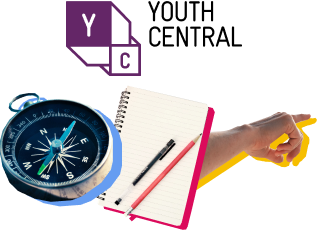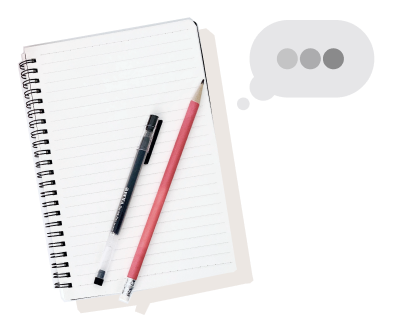Before you get a job, you need to write a resume. A resume tells an employer who you are, your skills and experience, and whether you might be a right fit for their organisation.
A resume is the first thing an employer reads before they even speak to you – it helps them decide if they want to give you a job interview!
14 million
people are employed in Australia
Keep it honest and simple
You don’t need lots of work experience to fill out a resume.
Focus on the things you’ve done, even if it doesn’t feel like much. It’s always best to be honest from the beginning. If you make things up, it will only come out later.
If you haven’t worked much before, one or two pages is best. Three pages is okay if you’ve got a lot of study and work behind you. Employers like short and succinct resumes.
Many employers train new starters to make sure they can do the job well. So it’s not always a problem if you haven’t done the job before.
Sometimes less is more! Employers only want to know the important things about you so try and keep your resume to 1-2 pages.
What to include
- Name and contact information
- Education history
- List of relevant skills like how to use a computer program, photography, or public speaking
- Accomplishments
- Volunteer work like babysitting your siblings, helping your neighbour mow their lawn, or work with a non-profit or community organisation
- Any past employment history
- Student placements if applicable
- References
Use a resume template
Don’t start with a blank slate. Download a template from the Youth Central website. Just follow the instructions and fill out the blanks. It’s easy.
It can seem overwhelming to write a resume but you’ll get the hang of it!
How to start writing your resume
Make sure your resume is short, simple, neat, has no errors like spelling mistakes, and is all true.
Try to make your resume easy to read and to the point. Keep your sentences short. Use bullet points.
If you’re applying for lots of jobs, you don’t want to have to update it for every job.
If there is anything specific you want to say in an application, you can include it in a separate cover letter.
My first resume didn’t have much on it, but it still helped me get my first job.
Write a cover letter
A cover letter is the very first thing a potential employer will read about you before they have met you or even read your resume.
What is a cover letter?
A cover letter is a one-page introduction about you. It’s your chance to share why you think you are right for the job.
It’s a great way to introduce yourself and explain a little bit about your experience, background and why you think you would be a great fit for the job.
It doesn’t have to be – long half a page can be more than enough if it says everything you need to.
Remember, you might be applying at the same time as lots of other people. So although you need to keep it professional, try to think of things that make you unique and the best person for the job.
Have someone read over and proofread your resume before finalising it.
Helpful tips and tricks
1. Make a list
Think about what skills you have already, who you might contact for references and the dates you attended school.
I was lucky to have family members and friends who could help me with my resume.
2. Remember that all experience is good experience
Maybe you helped out at your friend’s cafe once, organised a raffle at school or volunteered at the school fair. These might not seem like important skills but they are and show you have initiative and are eager to learn.
3. Look online for examples
Online examples can give you some great ideas.
Just don’t panic if your resume isn’t as detailed! You have to start somewhere and potential employees know that.
Our resume templates are really helpful as they show you where everything needs to go and what you might be missing.
Draft your resume or application for the job you are applying for.
4. Pay attention to detail
Remember this is the first thing an employer will see from you. Run a spell check, and if you can, ask someone you trust to read over it and give you some feedback.
Remember:
- Keep it simple
- You can always learn more skills – you have to start somewhere
- You have more experience than you realise
- If you aren’t sure, ask people you know – they’ll give you good ideas
- Review, review, review. Make sure to look over your resume a few times before submitting to ensure you’ve cleared all spelling and grammar mistakes.

Ready to put your skills into practice?
Get comprehensive guidance on resumes and cover letters at Youth Central.






